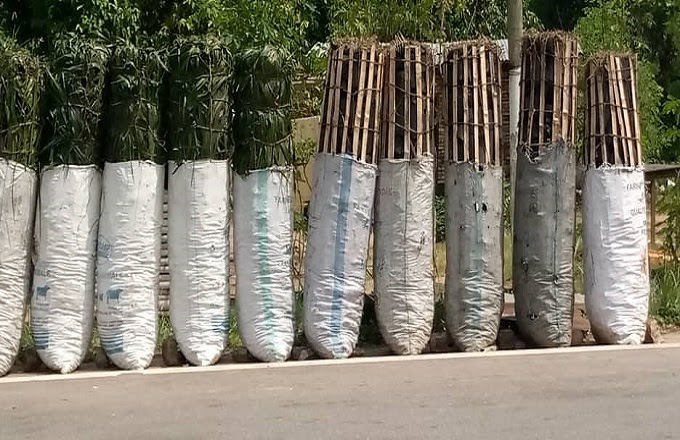Charcoal Trade Contributing To Forest Depletion In Congo Brazzaville
Unemployed youths in parts of Congo Brazzaville contribute to deforestation and environmental hazards through a thriving charcoal market.

There has been an exponential rise in unemployment in Congo Brazzaville and unemployed youth, including university graduates, who cannot find jobs, are resorting to various means to procure the means to survive.
One year under the debilitating effects of the COVID-19 pandemic which has pushed up the rate of unemployment, one source of income for the youth in Congo Brazzaville is the charcoal business.
“The price of a 50kg bag of charcoal has recently risen from 2,500 FCFA (about $5) to 4,000 FCFA (about $8).
“This rise in the price of charcoal has attracted many youths between the ages of 18 and 40 to the business. However, in order to get charcoal, one has to burn wood and to get the wood, one has to cut down trees.
“There has been a savage assault on forests, especially in Hinda, situated in the Kouilou Division, where the rate of unemployment is very high, forcing the youth to resort to the charcoal business, ” a senior forestry official who opted for anonymity because he is not an official spokesperson for the Ministry of Forestry, told HumAngle on Monday.
Kouilou has a land area of 13,650 square kilometres, most of which is forest.
According to sources in the Ministry of Forestry, most of the forest in Hinda has been destroyed by youths searching for wood to burn for charcoal.
The Republic of Congo has a policy on the fight against deforestation based on the national strategy of Reducing Emissions from Deforestation and Forest Degradation (REDD+), which is being put in place.
However, the various government agencies which are supposed to fight against deforestation do not seem to be doing a great job.
“Forestry agents who are supposed to fight against deforestation themselves have unemployed children and dependants who are involved in the charcoal business, so the fight against deforestation faces a lot of emotional hindrances from that end,” another official said.
“With the increasing urban and rural populations, the pressure on our forests also increases by the day.
“Repressive measures on the part of government do not seem to have been working. I think the most appropriate solution now is sensitisation of the local populations on how to manage their forests, ” the official said.
Until the sensitisation starts, the government would have to continue to accommodate the savage assaults on its forestry reserves, observers say.
Support Our Journalism
There are millions of ordinary people affected by conflict in Africa whose stories are missing in the mainstream media. HumAngle is determined to tell those challenging and under-reported stories, hoping that the people impacted by these conflicts will find the safety and security they deserve.
To ensure that we continue to provide public service coverage, we have a small favour to ask you. We want you to be part of our journalistic endeavour by contributing a token to us.
Your donation will further promote a robust, free, and independent media.
Donate HereStay Closer To The Stories That Matter




